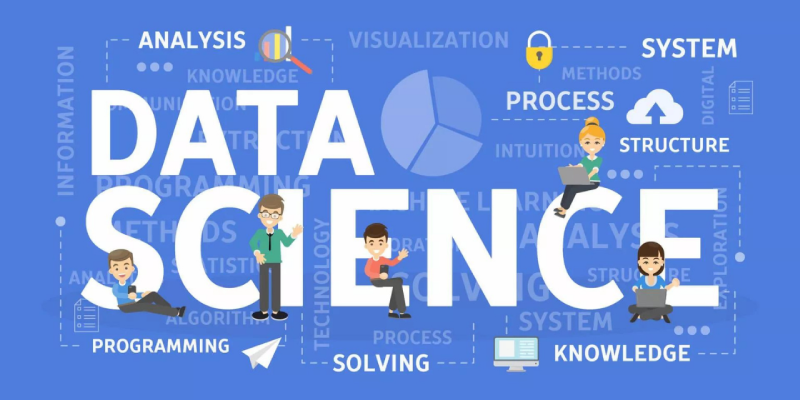Over the last decade, Kenya has rapidly transformed into one of Africa’s leading digital economies. Dubbed the “Silicon Savannah,” the country has experienced explosive growth in mobile technology, fintech innovation, e-commerce, digital health, and smart agriculture. At the heart of this transformation lies one powerful driver: data.
Every mobile transaction, online purchase, weather report, and medical record adds to the vast ocean of information being generated daily. But data alone has no value until it is organized, analyzed, and translated into actionable insights. That’s where data science comes in — and it’s why the demand for data scientists in Kenya is stronger than ever.
What is Data Science?
Data science is the interdisciplinary field that uses statistics, programming, and domain expertise to extract meaningful insights from data. It combines elements of:
- Mathematics and Statistics – for data analysis and predictive modeling.
- Computer Science – for data collection, storage, and algorithm development.
- Domain Knowledge – understanding the specific industry or problem context.

In practical terms, a data scientist might help a bank detect fraud before it happens, assist a hospital in predicting patient needs, or enable a retailer to forecast demand for the holiday season.
Why Data Science is in Demand in Kenya
1. Digital Transformation Across Industries
Kenya’s shift to a digital economy has created unprecedented volumes of data. With over 63% internet penetration and a mobile money adoption rate among the highest in the world, industries are flooded with customer, operational, and market data.
Sectors leading the demand for data science skills include:
- Financial Services – Banks, SACCOs, and fintech startups use predictive analytics to assess credit risk, detect fraudulent transactions, and design personalized products.
- Telecommunications – Mobile operators rely on machine learning to optimize network coverage and predict customer churn.
- Healthcare – Hospitals and NGOs analyze patient data to improve treatment accuracy and allocate resources efficiently.
- Agriculture – Data-driven insights guide planting schedules, irrigation, pest control, and supply chain management.
- Retail and E-Commerce – Online platforms like Jumia and Glovo use behavioral analytics to refine marketing and inventory strategies.
The result? A booming demand for professionals who can manage and interpret this data to drive smarter decisions.

2. Salary Competitiveness
In Kenya, data science is among the highest-paying tech careers. According to multiple salary surveys and recruitment reports:
- Entry-level: KES 80,000 – 150,000 per month.
- Mid-level: KES 180,000 – 250,000 per month.
- Senior-level: KES 300,000 – 350,000+ per month.
This earning potential reflects both the scarcity of qualified data scientists and the high value businesses place on data-driven expertise.
3. Shortage of Skilled Professionals
Despite the growing interest in the field, there is still a talent gap. Many graduates in Kenya have strong technical skills but lack the ability to connect data analysis with business strategy. Employers are actively seeking candidates who not only understand Python, R, SQL, and machine learning but can also present insights in a way that drives decision-making.
Skills That Make You Competitive in Kenya’s Data Science Market
If you are aiming to build a successful data science career in Kenya, these are the core skill areas to master:
Technical Skills
- Programming: Python, R, and SQL.
- Machine Learning: Regression, classification, clustering, neural networks.
- Data Visualization: Tableau, Power BI, Matplotlib, Seaborn.
- Big Data Tools: Apache Spark, Hadoop.
- Cloud Platforms: AWS, Google Cloud, Microsoft Azure.
Business and Analytical Skills
- Problem framing: Understanding the business challenge before diving into analysis.
- Storytelling with data: Presenting findings to non-technical stakeholders.
- Decision-making: Recommending clear, actionable strategies.
Education and Training Pathways in Kenya
Kenya offers a range of ways to enter the data science profession, from formal degrees to bootcamps and online learning.
University Programs:
- University of Nairobi – Offers postgraduate programs in data analytics and computer science.
- Strathmore University – Specializes in data analytics and applied statistics.
- Jomo Kenyatta University of Agriculture and Technology (JKUAT) – Provides data science and AI-focused courses.
Professional Training:
- Moringa School – Intensive data science bootcamp.
- ALX Africa – Practical, project-based data science curriculum.
- iLabAfrica – Offers short courses in data analytics and visualization.
- Digiask College – Known for offering market-relevant, skills-focused programs, Digiask College provides accessible and practical training in data science and analytics. Their courses are designed to equip learners with both technical expertise and real-world problem-solving abilities, making graduates job-ready for Kenya’s competitive tech market. Interested learners can explore their programs for flexible study options and industry-recognized certifications.
Online Platforms:
- Coursera – IBM Data Science, Google Data Analytics.
- DataCamp – Practical coding and analytics courses.
- Udemy – Affordable beginner-to-advanced data science programs.

The Future Outlook for Data Science in Kenya
The future of data science in Kenya looks bright for several reasons:
- AI and Machine Learning Adoption – Organizations are increasingly integrating AI-driven solutions for customer service, fraud detection, and process automation.
- Government Digital Initiatives – Projects like eCitizen and digital ID systems are generating vast datasets requiring advanced analytics.
- Start-up Ecosystem Growth – Nairobi’s thriving start-up culture offers opportunities to work on innovative, high-impact projects.
- Regional Leadership – Kenya’s role as an East African tech leader means local data scientists may also serve clients across the region.
Given these trends, data science is not just a current career opportunity — it’s a future-proof profession.
Challenges and Considerations
While demand is high, aspiring data scientists in Kenya should be aware of certain challenges:
- Skill Gap – Many job postings require a blend of technical and business expertise.
- Competition from Global Talent – Remote work allows companies to hire internationally, increasing competition.
- Need for Continuous Learning – The field evolves rapidly, requiring ongoing upskilling.
Conclusion
So, is data science in demand in Kenya? The answer is a resounding yes. The country’s accelerating digital transformation, coupled with the growing need for data-driven decision-making, has made data science one of the most valuable and lucrative career paths in the market.
For those willing to invest in the right mix of technical proficiency, business understanding, and communication skills, the rewards are significant — both financially and professionally. As Kenya continues to embrace AI, machine learning, and advanced analytics, the opportunities for data scientists will only expand.
